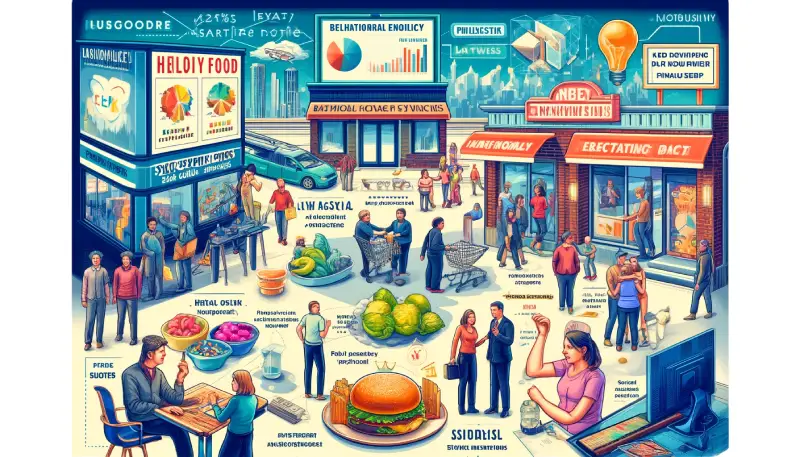Behavioral Economics: Understanding Human Decision-Making
Behavioral economics combines insights from psychology and economics to explore how people actually make choices, rather than how they would if they were perfectly rational. Unlike traditional economics, which assumes individuals act rationally to maximize utility, behavioral economics acknowledges that cognitive biases, emotions, and social factors often influence decisions. This article delves into the core principles, key concepts, and applications of behavioral economics, shedding light on how it reshapes our understanding of economic behavior.
Core Principles of Behavioral Economics
- Bounded Rationality: This principle suggests that individuals are not always fully rational due to cognitive limitations and the complexity of decision-making environments. People use heuristics or mental shortcuts to make decisions, which can lead to systematic errors.
- Prospect Theory: Developed by Daniel Kahneman and Amos Tversky, this theory describes how people evaluate potential losses and gains. It highlights the concept of loss aversion, where the pain of losing is psychologically more impactful than the pleasure of gaining an equivalent amount.
- Heuristics and Biases: Behavioral economics identifies several cognitive biases that influence decision-making. Some of these include:
- Anchoring: The tendency to rely heavily on the first piece of information encountered (the “anchor”) when making decisions.
- Availability Heuristic: Overestimating the importance of information that is readily available or recent.
- Confirmation Bias: The tendency to search for, interpret, and remember information that confirms pre-existing beliefs.
- Nudges: Coined by Richard Thaler and Cass Sunstein, nudges are subtle policy shifts or changes in the choice architecture that steer people towards better decisions without restricting their freedom of choice. For example, automatically enrolling employees in a retirement savings plan, with the option to opt-out, significantly increases participation rates.
Key Concepts in Behavioral Economics
- Hyperbolic Discounting: This concept describes the tendency for people to prefer smaller, immediate rewards over larger, delayed ones. This time-inconsistent preference can explain behaviors like procrastination and poor saving habits.
- Endowment Effect: People ascribe more value to things simply because they own them, which can lead to suboptimal trading and investment decisions.
- Social Preferences: Behavioral economics recognizes that individuals care about fairness, reciprocity, and social norms, which can influence economic behavior beyond self-interest.
- Mental Accounting: This concept explains how people categorize and treat money differently based on subjective criteria, such as the source of the money or its intended use. For example, someone might splurge a tax refund on a vacation but be frugal with their regular paycheck.
Applications of Behavioral Economics
- Public Policy: Governments use behavioral insights to design policies that promote better health, financial well-being, and environmental conservation. For instance, placing healthy foods at eye level in cafeterias can nudge people towards healthier eating choices.
- Marketing and Consumer Behavior: Companies apply behavioral economics to understand consumer behavior, design better products, and create effective marketing strategies. Techniques like framing (how choices are presented) and scarcity (limited-time offers) leverage cognitive biases to influence purchasing decisions.
- Finance: Behavioral finance examines how psychological factors impact financial markets and individual investment decisions. Understanding biases like overconfidence and herd behavior helps in creating strategies to mitigate irrational investment behavior.
- Health: Interventions based on behavioral economics principles, such as reminders and incentives, can encourage healthier lifestyles and adherence to medical treatments.
Challenges and Criticisms
While behavioral economics has provided valuable insights, it also faces criticism. Some argue that it lacks a unified theory and relies too heavily on experimental findings that may not always generalize to real-world settings. Others caution against over-reliance on nudges, advocating for broader structural changes to address underlying issues.
Conclusion
Behavioral economics offers a more nuanced understanding of human decision-making by integrating psychological insights into economic models. By acknowledging the limitations of rationality and the influence of cognitive biases, it provides a richer framework for analyzing economic behavior and designing interventions. As the field continues to evolve, its applications promise to improve individual well-being and inform more effective public policies.

